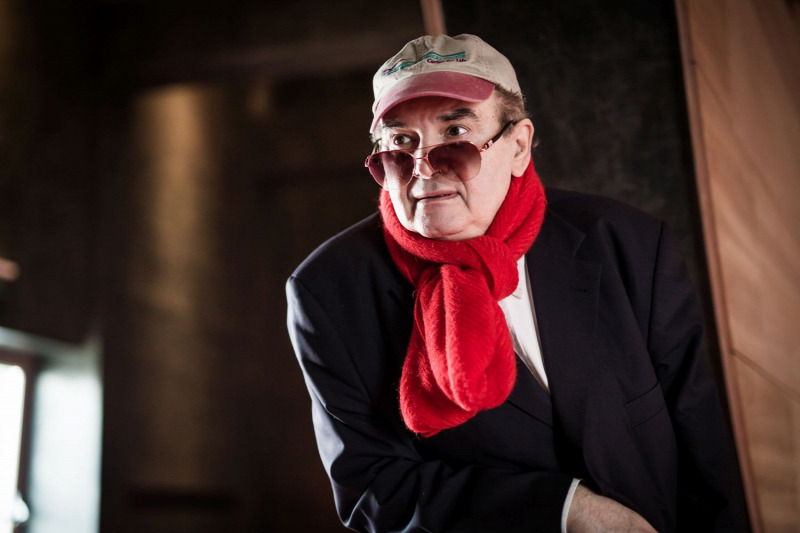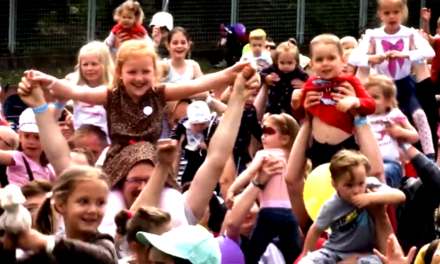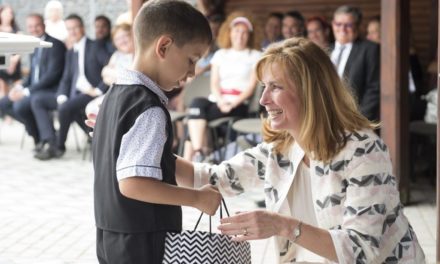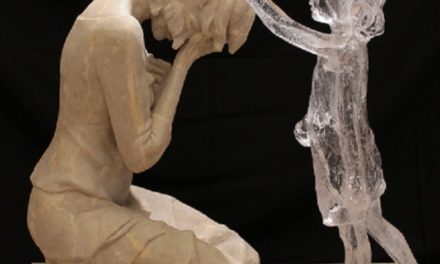, Béla Szakcsi Lakatos, jazz pianist, pianist, composer, Kossuth Prize-winning artist, and Artist of the Nation, received the Petőfi Rádió He told Origo that he was very surprised when they called him, but he was extremely happy. He also talked about how he and the Mandoki Soulmates prepared for last summer's open-air concert, and what words of appreciation Al Di Meola and Richard Bona gave him. Béla Lakatos Szakcsi said that he was very hurt that he was attacked by the left after the opening of the House of Hungarian Music. He put it this way: he is outside of politics, but he never denied that he is a Christian with conservative sentiments. But he never criticized the other side. "I honestly don't understand why they hurt me on the opposition side. If it's because I'm a Christian, conservative person, and I don't hide it, then I think they portrayed themselves in a very bad light. One of the basic pillars of democracy is that everyone decides and votes as their heart dictates," said the artist. Interview with Béla Szakcsi Lakatos.
A few weeks ago, he received the Petőfi Rádió Lifetime Achievement Award. How did you find out you were getting the recognition?
I was contacted by phone first. I was very surprised, but extremely happy. After that, of course, I went to the award ceremony, and they showed a few clips of me at the gala. It was then that I understood why I had actually received the award. In my opinion, because I was the first jazz musician in 1972 - when I came home from New York and brought a Fender piano - who played fusion music at home. In other words, I mixed pop music with jazz. This had a great impact on pop musicians at home as well.
A lot of people said that they went to the clubs where we played as young people and were inspired by the music of our band - Rákfogo.
I played with fantastic musicians: Gyula Babos played guitar, Imre Kőszegi played drums, Miklós Orszáczky played bass. Mihály Ráduly played the saxophone and I played the piano. Of course, the jazz musicians said that I betrayed jazz, but five years later they were already trying to play the same way. Many well-known and famous musicians, such as Leslie Mandoki, have since stated regularly that the music of Rákfogó had a huge influence on them. There were interview excerpts in the film played at the award ceremony. In one of them, I said that I came from a poor gypsy family in VIII. district, from Pap tér. I would never have dreamed that I would have such a career. And it is indeed so.
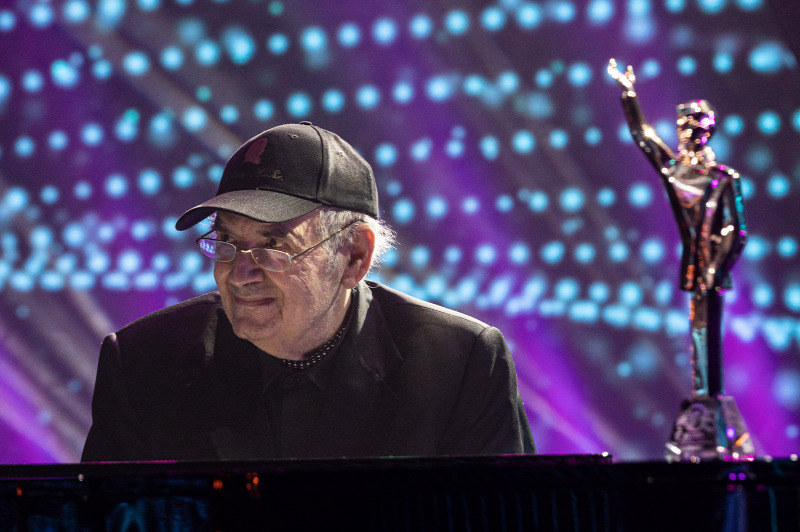
Lifetime Achievement Awardee id. Pianist Béla Lakatos Szakcsi, Artist of the Nation, plays his instrument at the Petőfi Music Awards in the studio of MTVA's production base in Óbuda Source: MTI/Csilla Cseke
If you mentioned Leslie Mandoki: last summer he played in front of the Basilica together with the Mandoki Soulmates - such world-famous musicians as Al Di Meola, Richard Bona or Mike Stern. How did Leslie Mandoki's music – the rock suite written on Bartók motifs – affect you?
Before I heard the music, Leslie called me and told me what he was working on, that is, he was writing music to Bartók's music. He was afraid that it might not be well received by the audience, because it is modern music, a little different from pop music. I told him not to worry, just do it and believe me, it will be a big success. I knew that the number one favorite of American musicians was Béla Bartók. For almost everyone.
Mandoki Soulmates performed a kind of mission by surrounding Hungarian folk songs with rock, jazz and pop music.
And the end result was fantastic. He promoted Béla Bartók and Hungarian folk music all over the world. I knew the audience would love it. Leslie was a little worried even in the square in front of the Basilica, before the concert, but in the end it was a huge success. 30,000 people in the square gave a standing ovation.
How did so many world stars relate to each other during the rehearsals: you, Mandoki, Al Di Meola and the others?
I was very respected, and I was extremely happy about it. Of course, I knew some of them from before. When I walked into the first joint rehearsal, Leslie introduced me as
here is the king.
Of course, that was nice too, but I told him not to do that, since everyone in the room is an excellent musician. Al Di Meola and I sometimes went home together after rehearsal - he lived in the same direction as me. We talked about his new guitar playing and he asked my opinion. You know, I lived in America, I played, and my records were released in the United States. I know that one of the biggest compliments there is when someone is called "killer", that is, they play so well. There is no greater compliment than that when someone says of a musician that he is "not from Earth." Richard Bona - one of the members of Soulmates, the Cameroonian bassist and singer - said exactly this about me.
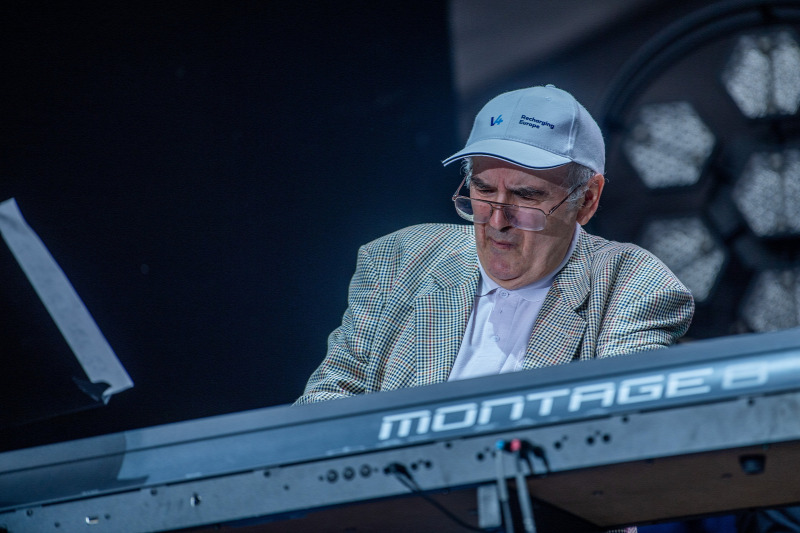
Kossuth and Ferenc Liszt prize-winning pianist Béla Szakcsi Lakatos at the Mandoki Soulmates' free album launch concert at St. Stephen's Basilica in Budapest on August 21, 2021 Source: MTI/Zoltán Balogh
In one place he stated that Bartók was the first fusion musician...
Yes, because Bartók was greatly influenced by Beethoven, but it was throughout the 18th and 19th centuries. century music, Wagner and Strauss inspirations can also be heard in his music, and he went all the way to Stravinsky and Schönberg. But he did not imitate these fantastic composers, but created a classical musical essence in which he also incorporated folk music motifs. Bartók collected not only Hungarian, but also Romanian and Bulgarian folk music, and he would even have gone to India if he had had the opportunity. His plan was to collect all the folk music of the world and find something in common among them. Unfortunately, it didn't work out, but if you think about it, it did: because pentatony - i.e. the five-degree scale - is present in all folk music. So, Bartók collected so much folk music, encountered so many motifs, that the sounds of folk music were in his ears, and he wrote them down. Bartók's work is unique.
Chick Corea - multiple Grammy Award-winning American jazz pianist - was a very good friend of mine. He adored Bartók, he had all his music.
I think these excellent jazz musicians learned a lot from Bartók. Unfortunately, Corea died. But I have an interesting story with him. My son Robert made a jazz record years ago and asked me to give him Chick Corea's email address so he could send him the audio. Sure, I gave it. And my American friend replied that he really likes it. Then at the end of the letter he wrote:
I greet your father and tell him I'll meet you at Heaven's Gate.
He died shortly after writing the letter. I've been thinking about it a lot ever since. He couldn't have known he was going to die. Why did you write this message to me? Strange things happen to people sometimes.
He was admitted to the conservatory at the age of twelve, he studied classical music, but he was captivated by jazz at a very young age. When did you encounter this genre?
My father wanted me to learn the violin. I took the instrument in my hands and said: I will not play music with an outstretched arm for the rest of my life. Do I tire my hands holding the violin for decades? I didn't know then, of course, that musicians don't hold the instrument with their hands, but with their chins. Then I started playing the piano, and indeed, at the age of 12, I was admitted to the conservatory. I visited Pál Kadosa, Kossuth Prize-winning composer, music academy teacher, wife of the head of the piano department, who I thought was a great talent. Then one day the VIII. I met Dezső Ablakos Lakatos in the district. Do you know why it was called "The Window"? Because his glasses were so big. He had a drummer, Géza Lakatos, with him. They told us to play jazz. I replied that I can't improvise. But I played the boogie-woogie anyway. They really liked it - from here I already guessed that they weren't real jazz musicians either. We started making music together, I improvised. However, I began to neglect classical music a little. I exercised less. Pál Kadosa invited my father to school. He told her:
Unfortunately, you have to throw your son out because something is broken in him, he doesn't practice with the same intensity as before.
Then he continued: There may still be a solution, because it has a connection with an industrial vocational school, they will admit me there, and after a year they will take me back. My parents wanted me to become a pianist, and luckily my father did not agree to change schools.
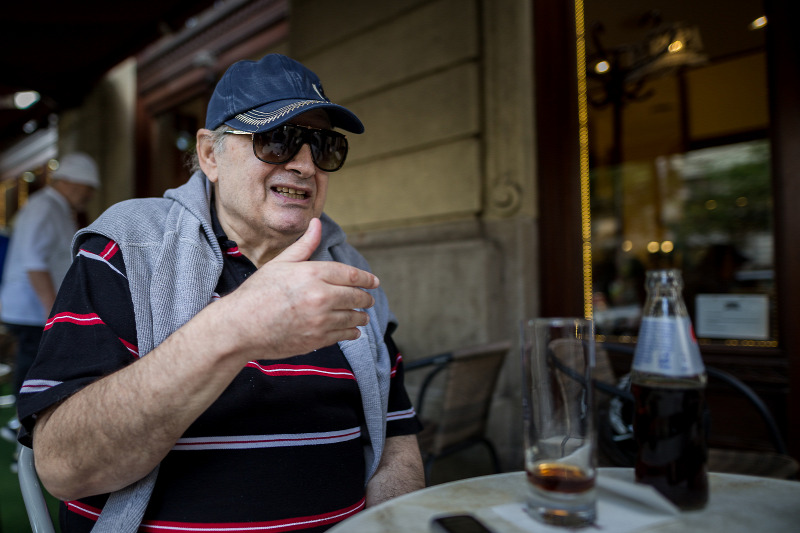
Béla Szakcsi Lakatos, Composer, Pianist Photo: Zoltán Adrián – Origo
Didn't you later regret not becoming a classical musician?
No, because improvisation is a wonderful thing. I wouldn't trade it for anything. By the way, I not only improvise jazz, but also classical music.
Péter Eötvös and György Kurtág are also recognized. I have been described as an improvisational artist.
Bartók, Schönberg, Stravinsky are also in my playing. It made me extremely happy that these two great artists spoke so highly of me.
Just as Zoltán Kocsis made a similar statement about you...
Yes, Zoli is also recognized. He couldn't really improvise, he told me that. Maybe that's why he respected my ability to improvise. And he was a fantastic, outstanding pianist.
He started improvising at the age of fourteen. But how to develop this skill? Do they teach improvisation in music schools anyway?
I always say that if someone wants to improvise after the age of sixteen, they can't. Apart from one or two very rare exceptions.
Why? Why can't an 18-year-old, for example, improvise?
Because he doesn't dare anymore.
He has reached an age when inhibitions are formed in man.
At the age of fourteen, this does not really appear yet, the young musician tries bravely, improvising without limits. At the age of 18, this is much more difficult - almost impossible. And they don't teach improvisation in music schools. In the old days, however, they taught, and the greatest pianists and violinists could improvise. And of course all composers too. After all, composing is improvisation itself. Péter Eötvös knows, for example, I played with him once.
You can improve your improvisation skills by listening to a lot of music.
I did a lot of classical music, playing the piano from scores. My jazz piano playing and later improvisation developed from this. This is a very interesting thing, as you have to decide in a fraction of a second where the musical race should start, you have to remember what motif you played, and come back to it later, perhaps developing the melody a bit. You have to practice a lot and listen to a lot of music. Then it remains in the back of the brain somewhere, which always comes up when needed. Improvisation is a wonderful feeling.
He achieved great success not only in Hungary, but also abroad. In 1970, he won second place with the Pege Aladár Quartet at the Montreux Jazz Festival, after which he lived in the United States, played music in many places, scored music for Special EFX, and released his own records for GRP. Have you thought about settling in America permanently?
Of course it occurred to me, but then we didn't go with my family. GRP records were distributed by BMG - the world's largest music distributor - so my records were available all over the world. One of my students visited Greenland and found my record. Another of my students came across one of my albums in India. Many people thought I was a millionaire. However, it was not like that, because BMG did not promote or manage the publications. I'm not saying that I didn't make good money, of course, but far from millions of dollars. I could have been a millionaire, of course, if I thought differently.
What should you have changed to become rich?
If I got a manager in Europe and toured with my records, I would probably be much better off financially. Then I might have lost my improvisation skills. Because I should always have played my own solo records. I'll give you an example. Kenny G. is a jazz saxophonist, but most of the world knows him as a musician who plays soft melodies. Millions are still fans of it to this day. He chose that path. But back to why we didn't move to America with the family. The green card application had already been submitted when I had to come home because a tragedy happened in the family. Then, of course, I went out again, several times, wrote songs for Special EFX, and had other jobs as well. With a visa called "O 1 Visa", I was able to travel back and forth for half a year, and my wife also received an accompanying visa. But I also had a ten-year visa. I was just at home, I had to go to Pécs for a solo concert, but I overslept. I woke up suddenly, the TV was on, and I saw that the two towers had collapsed. I didn't know exactly what had happened yet, but I said that in my opinion America was over. It's time for absolute control. And I was right. Sometimes I still went out once or twice, but I didn't use my work permit and my ten-year visa anymore.
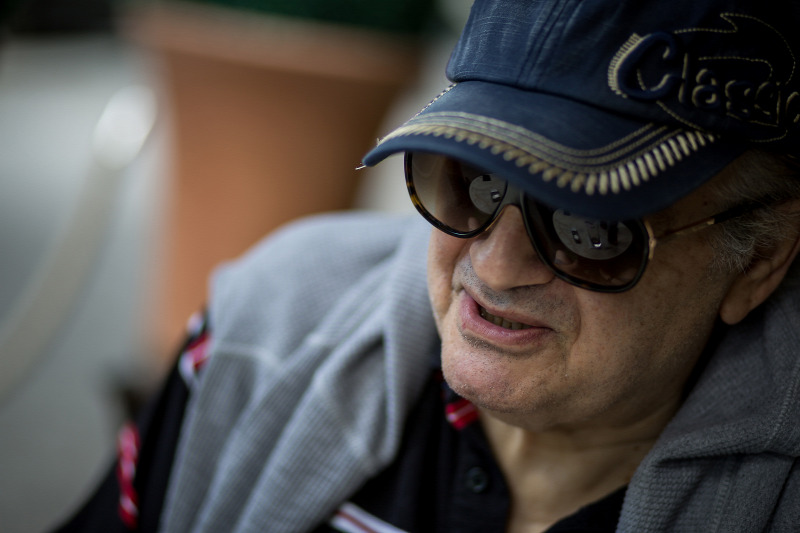
Photo: Zoltán Adrián – Origo
Haven't you regretted it since you made that decision?
Not at all. You know, I believe in God.
I always say: I am led by God, he is my manager.
I find it rather good that I didn't stay there, because in my opinion America has completely changed culturally - unfortunately in the wrong way.
He also recently wrote an opera - a mystery play - about a series of bad decisions made by humanity. When can the audience hear and see it?
Indeed, even before the pandemic, I finished this mystery game that I have been cherishing for 8-10 years. We didn't know then that there would be a pandemic.
It's about the fact that humanity always chooses the wrong path, and it would be nice if we started in the right direction.
I invented the story, the libretto was written by György Bolyki. It consists of four images. The first is Adam and Eve in the Garden of Eden - where they make a bad decision and are kicked out of Paradise. The second picture shows the state before the Flood, where people also make bad decisions. The third is the story of Nimród, we know the consequences of the wrong decision there as well. And the fourth picture is a vision, it takes place in 2060, which I don't want to say more about for now, then the viewers will see what the catharsis is.
I wanted anyone, be it believer or atheist, to see and listen to this opera, to think about what is really going on in the world and what should be done to make life on Earth better.
The disc recordings will be ready soon, and later I would like to present them at the Opera or Müpa. I thought that not only opera singers should play in it, but also several pop musicians and operetta artists. This is how Charlie, Attila Kökeny, Sándor Sasvári, Attila Dolhai, opera singer Ádám Horváth and Erika Miklósa sing, among others. They are the main characters in the mystery game. To my delight, everyone I asked accepted. Popular, great artists, famous musicians, and I hope that young people will also listen to the play with interest.
Would you even present it at the House of Hungarian Music?
Yes, of course, although after the ceremonial opening I was attacked a lot by the opposition... But I was only joking. I also met the Prime Minister after the opening, and he said: we always need a little humor. He took it as well. The opposition attacked this. I do not know why.
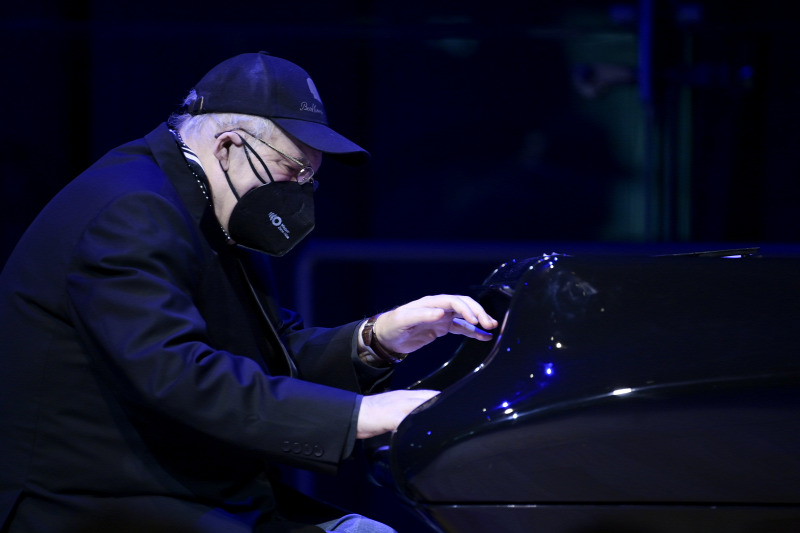
Béla Szakcsi Lakatos, Kossuth and Ferenc Liszt prize-winning pianist, at the opening of the House of Hungarian Music completed in the Liget Budapest project on January 22, 2022. Source: MTI/Szilárd Koszticsák
However, he was out of politics in his worldly life - and he declared this to a newspaper...
Yes, that's right.
To me, that means I never hurt either side.
Never. No one could hear that from me. But maybe it's okay that my heart pulls in one direction or another. You know, some people also argue that I didn't take the Józsefváros honorary citizen title, and that's already a resolution. However, I did not accept that award primarily for non-political reasons. I am the VIII. I come from the district, and jazz started there. Mr. Pikó contacted me to ask if I would accept the honorary citizen award, as I am a well-established member of the eighth district. I said sure, why not accept it? Then the problems started, because they called me to come to my apartment and make a video compilation. That's when I got the idea that they wanted to involve me in some political campaign. This became suspicious, so I said the whole thing back and said that I would be happy to take it over next year.
Then he was searched by journalists? They asked why he didn't accept the award? Did you tell them this story?
Many journalists were looking for me, but I didn't make a statement.
One day, a man called me and asked about the same thing. I also told him not to be angry, but I will not speak to journalists. He said that he was not a journalist.
I talked to him.
The next day, however, the conversation was published in one of the opposition papers. I was honestly shocked that I was scammed like that, but in the end, he didn't write anything wrong, just what I told him, which is otherwise true.
But then I learned to be careful.
Returning to the presentation of the House of Hungarian Music: were you surprised that it was attacked so fiercely?
Yes, very much. Of course I didn't read the comments, but my sons did.
They hurt me very badly, some people denigrated me, and they also wrote things like, well, the nail came out of the bag, I'm not even a person outside of politics.
Certainly not in the sense they thought.
Because I have never hidden it, I have always emphasized that I am a religious, conservative person. This system of values is represented by Fidesz in Hungary.
I interpret being outside politics as not disparaging the other side. This has never been done before and never will be.
I do not participate in any debate. I'm not hurting anyone.
But I think it is my heart's right to sympathize with one side. It is the right of my heart to like the party that follows the values that I share. But I won't hurt the other side. It is none of my business. You know, I make music together with many musicians, several of whom support the opposition parties. I have no problem with that, and they also know that I am Christian and conservative. We can make great music together. Some of them, including a very famous musician, go into opposition television studios and scold Fidesz. I don't, I don't go on right-wing television to scold the opposition.
I am a musician, a jazz musician, not a politician. It is not my business to engage in political debates.
By the way, I don't even care that they - my fellow musicians with oppositional sentiments - go on TV to scold the right wing. I don't deal with that. I keep playing, making music, because art and music are important, and everyone has the right to think the way they want. They scold Fidesz, I don't scold the opposition. That's the difference. However, I honestly don't understand why they hurt me on the opposition side. If it's because I'm a Christian, conservative person, and I don't hide it, then I think they portrayed themselves in a very bad light. One of the basic pillars of democracy is that everyone decides and votes as their heart dictates.
civilek.info: As you could read in the interview, Béla Szakcsi Lakatos has played with many world-famous musicians. Frank Zappa, referred to as the genius of rock and the author of many important contemporary symphonic compositions, chose Szakcsi as the keyboardist for his short concert in Budapest. When Zappa was asked who he considers to be great composers and who he draws inspiration from, he mentioned Bartók after Stravinsky and Varése.
Source: origo.hu / Barbara Vági
In our opening picture: Béla Szakcsi Lakatos Source: Szilvia Csibi / Müpa

